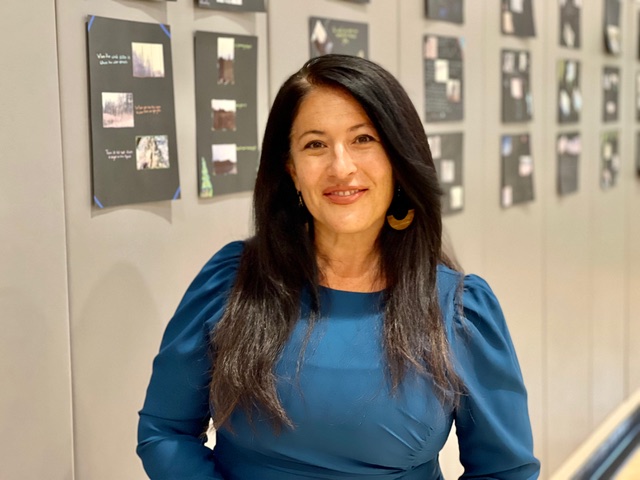May Director's Journal

Last Tuesday night in Cloverdale—a coastal town with fewer than 200 residents—450 people filled the Nestucca K-8 school gym for the final public event of Ada Limón’s tenure as U.S. Poet Laureate.
As the community streamed in, they were greeted by music from Forest Grove High School’s award-winning band, Mariachi Tradición.
“I don’t know why, but I started crying as soon as I heard them singing,” a community member confided. “They are so talented and the music is so joyful. I wasn’t prepared for it.”
They weren’t alone. Several others pulled me aside before the reading even began to share how unexpectedly emotional the music had made them. In a time of so much change and uncertainty—including in education and the arts—we are all carrying so much, steeling ourselves for what’s next. Somehow, the triumphant, joyful sound of mariachi opened something in us. It made us ready to receive.
“It’s a rare kind of energy in the room when the community comes together for something so magical—my face was beaming for hours from the warmth of the experience,” Shannon Carlson, Sitka’s Communications Director, reflected.
After Mariachi Tradición’s final bow, Superintendent Misty Wharton welcomed the crowd, and Nestucca High School student Noe Lopez had the honor of introducing Limón. When Ada stepped to the podium, the ovation from the wooden bleachers sounded like thunder. “This is my final public event as Poet Laureate,” she shared, visibly moved.
Throughout the reading, Limón held both beauty and truth in tension. She mourned the premature dismissal of Librarian of Congress Dr. Carla Hayden, which had taken place just a week earlier. She reflected on meeting stewards of our national parks through her You Are Here project, and she acknowledged the uncertainty and change those places—and their caretakers—now face.
Introducing her poem In Praise of Mystery, commissioned by NASA and engraved on the Europa Clipper spacecraft now traveling 1.8 billion miles toward the Jupiter system, Limón offered a note of cosmic reverence: “The scientists will all tell you, this planet—our planet—is the best planet.”
With intimacy and universality, the poem’s final lines resonated:
We, too, are made of wonders, of great
and ordinary loves, of small invisible worlds,
of a need to call out through the dark.
Throughout the reading, I found myself at once fully present and overcome with gratitude: gratitude for nearly two years of planning and partnership and for the quiet work and generosity of so many at Sitka and in the community who helped bring her visit and free public readings to fruition.
Maria Elting, Sitka’s Program Manager, put words to the feeling: “Our small team has been working so hard as Sitka’s community grows and our reach expands, especially as arts access contracts elsewhere in the country. Slowing down to listen to Ada’s poetry—as she concluded three years of public service—reminded me of what is at the core of the work we are all doing: reflection, and reverence for the more-than-human world and our place within it.”
Others felt it too. Jake Simondet, Sitka’s Ecology and Facilities Manager, shared, “Ada writes in such a visually descriptive way that her words often paint a vivid picture in my mind. Listening to her, I felt a full-bodied swell of emotions that encouraged a deep sense of creativity in me that I have rarely felt in my life.”
Youth Program Director Leeauna Perry found the most powerful moments in what wasn’t said aloud. “The silence between Ada’s stories and poems held us. The audience collectively reflected—holding their breath as a community, waiting in wonder for the next poetic offering. It was a true event of peace and love that brought individuals from all walks together to celebrate the arts, nature and connection.”
And as people lingered afterward, you could see it—Jake was right. “The joy in everyone’s interactions… the gratitude people expressed as they left the school… perhaps they were all just as inspired as me.”
And we were. We are.
A week later, it feels premature to try to sum it all up. To do so would put it in the past—but the truth is, that evening is still electric, rippling through me.
Sitka’s spring keynote with Ada Limón reminds me that the arts don’t just mirror our world or help us cope with life—they help us embrace it, question it and love it more deeply.
And when 450 people gather in a rural gym to hold their collective breath for a poem?That’s more than a reading.
That’s a kind of revolution.
- Journals